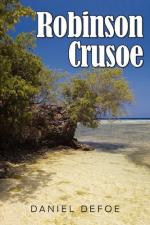|
This section contains 1,688 words (approx. 5 pages at 400 words per page) |

|
Jeremy W. Hubbell is a graduate student in History at SUNY Stony Brook and has written for a wide variety of business, academic, and educational publishers. In the following essay, he views Robinson Crusoe as a guidebook for English colonialism.
Today, the typical reading of Daniel Defoe's Robinson Crusoe assumes that the novel is central to the bourgeois myth However, as Diana Spearman and others have pointed out, the story of a man in isolation for twenty-four years is a strange myth for a class of people dependent on an economic system that requires people to interact with one another through an economic medium.
Instead, Defoe's novel meditates on the redeeming qualities offered by the labor of colonialism for the Englishman. Work was the way to civilize the wilderness of the New World and achieve peace with God The project of colonialism, as the Puritans were proving...
|
This section contains 1,688 words (approx. 5 pages at 400 words per page) |

|




